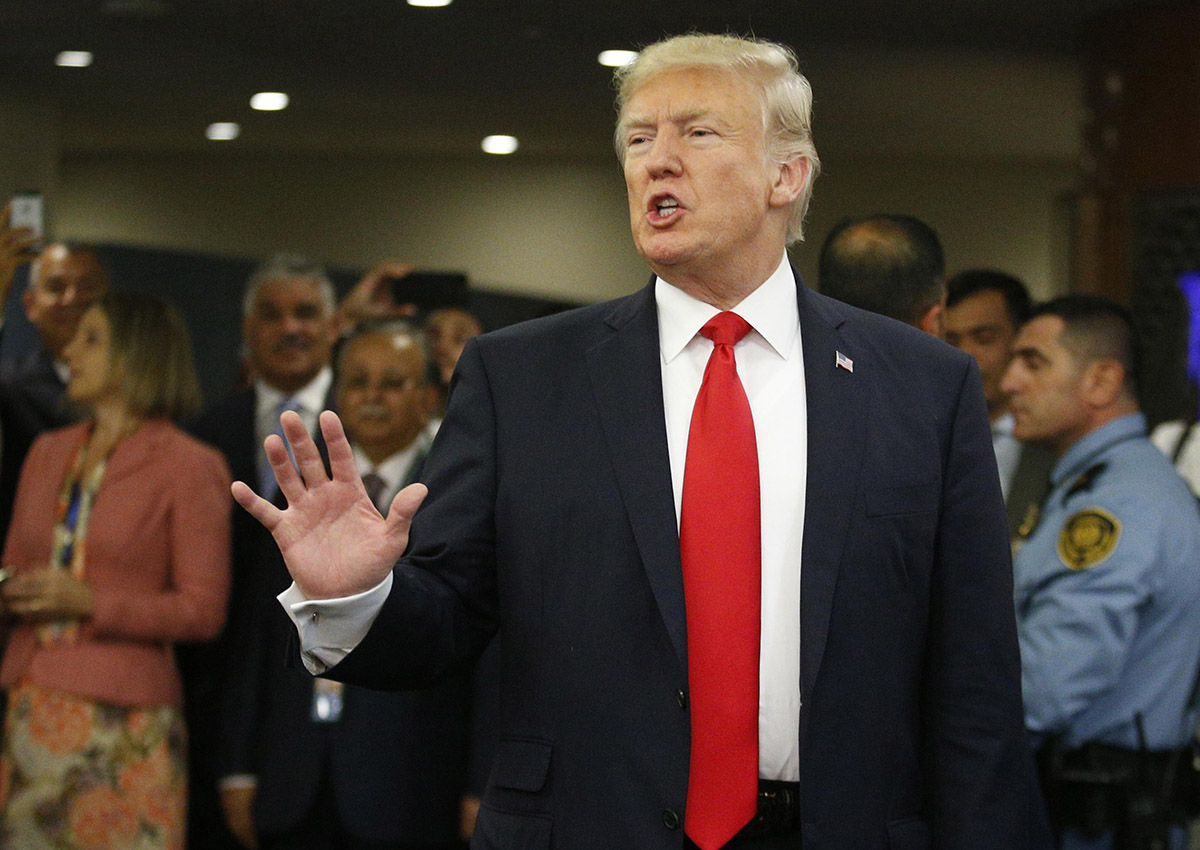The drama and upheaval of the 1935 Alberta election is a piece of history most Canadians, and probably even most Albertans, are not familiar with.

The same can likely be said of the monumental showdown over freedom of the press that followed soon after. At the time, though, it was a massive story, garnering international media attention and culminating with a landmark Supreme Court ruling and a Pulitzer Prize award for Alberta’s newspapers.
It’s also a sobering reminder why we should not take for granted even those freedoms that we presume to be fundamental. The United States has always been a beacon for safeguarding such freedoms, with these principles so clearly enshrined in their constitution. As such, I never thought I’d see the day when I’d see an American president so overtly threatening to punish critical or unfriendly media.
Yet here we are.
Donald Trump’s hostility toward the media is well known, but this past week, the U.S. president went further than he has before by suggesting that broadcast media outlets who cover him unfairly be stripped of their licences:
This is the same Donald Trump who, earlier this year, swore an oath to uphold the constitution — a contradiction that did not go unnoticed, even among some principled Republicans and conservative commentators.
Fortunately, there’s probably little that Trump can actually do, so, for now, these may be idle threats. I wonder, however, how open Trump or his ardent supporters would be to an updated and customized version of Alberta’s 1937 Act to Ensure the Publication of Accurate News and Information.

Get daily National news
WATCH: Trump says NBC ‘made up’ story about Tillerson, calls it ‘fake news’

There are some deeper parallels here. The Social Credit leader at the time, William Aberhart, had a very strained relationship with Alberta’s newspapers which he believed provided unfair and biased coverage. Aberhart regularly denounced the media and urged his followers to boycott certain newspapers.
After forming government, though, rhetoric gave way to legislation. The proposed law would have forced newspapers to print an official “correction or amplification” whenever the government was so inclined. Newspapers that refused to comply would be fined, suspended from publishing or even shut down altogether.
It was an outrageous assault on press freedom, but it’s not as though it didn’t have its defenders. Just as now, where we have many Trump defenders attacking the media rather than standing for the principle of press freedom (although, it’s easy to imagine their reaction if Obama had issued a similar threat to, say, Fox News).
In countries where press freedom thrives, an abundance of different media voices exist. The “media” is therefore not monolith, nor is it infallible. Media outlets get it wrong sometimes, and there are those with agendas or biases. I doubt there’s ever been a political leader who wasn’t at some point angry with press coverage — maybe even justifiably so in some cases.
However, this cuts too close to the playbook in authoritarian regimes. Opposition and critical media are accused of “spreading lies” and being “enemies of the state,” thus providing a pretext for government crackdowns and repression. Trump may be limited in the damage he can do, but this hardly encourages less democratic regimes to show restraint when it comes to suppressing media.
This shouldn’t be about which political leader or party you support or which media outlet you despise. When Alberta’s NDP government tried to deny press credentials to the right-wing website Rebel Media, for example, there was a tremendous outcry — and not just from opponents of the NDP. For many, the principle was bigger than politics. As it should be.
Governments don’t get to decide which media outlets get to operate or even who counts as a journalist in the first place. I’d much rather have media outlets that infuriate our political leaders than to have a compliant, obedient and toothless media.








Comments